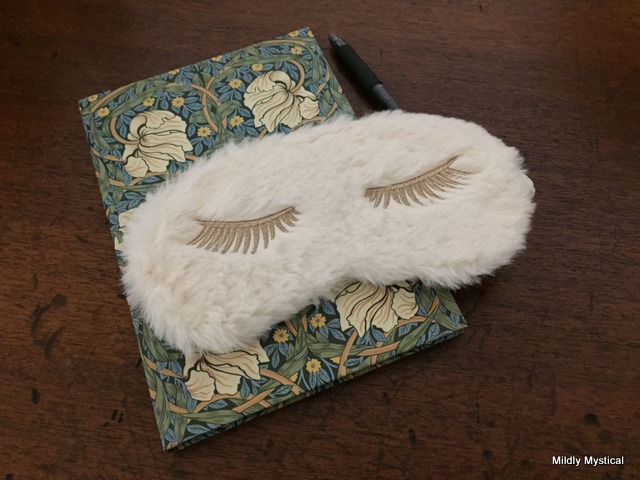You know what it’s like to wake from a dream with the feeling that it somehow matters, even though you have no idea what it means or how it’s connected to waking life.
The emotion that accompanies a dream is a clue to its importance, but our task-oriented mind loses patience with it. The analytical brain rejects what doesn’t make sense, and the dream fades to mist as our to-do list for the day takes over.
Our “crazy” dreams are actually trying to show us something. Every part of the dream represents some aspect of our lives. It brings some new perspective, something we’ve missed in waking life.
Dreams seem nonsensical because they communicate in a language of images. It’s a language we barely understand, but we can reconnect with this aspect of our human heritage. The more familiar we become with the language of image and symbol, the more readily we can engage with our dreams.
The first step is to keep a dream journal.
By writing down our dreams we strengthen the dialogue with the unconscious. We demonstrate that we are interested in what it wants to show us, and this helps in recalling our dreams. A dream journal and pen by the bed is like leaving the door to our dream world ajar.
Even the clearest dream can disappear if it isn’t captured in a dream journal. The more detail we can record, the better. But even a word or two scribbled in the middle of the night can often bring back the entire dream. Making sketches of the dream, or of a particular object or scene, is another way of bringing to mind more information about the dream.
Recording our dreams also helps with learning the unique language of our own psyche. For example, a particular setting may show up regularly, and the more we explore our associations with that setting the better we understand the context of the dreams that unfold there. For me, there’s a particular figure who shows up in times of transition. Our patterns are easier to notice when we keep a dream journal.
Writing down the dream provides the option of working on the dream in greater depth. Every element of the dream represents some aspect of our waking life experience. Exploring our associations with the dream’s places, people, objects, and actions helps connect the dream to what it’s about. Even if there’s not time to do this exploration right away, recording a dream allows you to return to it later. I generally record my dream on the right-hand page of my notebook and leave the left-hand page blank for making notes about my associations.
It’s not uncommon to look back through previous entries and come across dreams we hardly recognize as our own. Yet this sense of being outside the dream is often helpful at gaining perspective on it and exploring its message. The meaning of our dreams is sometimes easier to see in looking back at them.
Finally, a dream journal helps us share our dream with others. Talking about our dreams with another person or in a dream group is a further way of honoring the dream and gaining insight from the conversation. Notes in a dream journal allow us to relate a dream that might otherwise evaporate before we have the opportunity to share it.
Do you keep a dream journal? I’d love to hear what works for you!


Hi! I have been keeping a journal for most of my adult life. I record my dreams in this general journal because often they are linked to issues I am reflecting upon throughout my journal. I don’t see the connections until I look through the journal later – months or years later.
As you mentioned, I leave space in the journal to write down the dream on one side of the page and \ the meaning on the other.
I have found the Dream Moods A-Z Dictionary (online) offers reliable interpretations. I also reflect on the dream myself for intuitive meaning.
A good friend of mine has begun to write down her dreams because of my example. We often share our dreams and help each other look up the interpretations.
My mother was a dreamer. I have been dreaming all my life – I remember a specific moment when I was no more than five years old when I received an answer in a dream; it was all very clear. More recently I have become aware that I have a gift of dreaming. My dreams are often ‘prescient’ – foretelling an event, or advising me to pay attention to something. I am grateful for this gift of dreams!
What a gift to have discovered the power of dreams so early in your life, Connie. We do children a favor when we encourage them to share their dreams.
It sounds like a good idea to record your dreams in your regular journal. That would make it much easier to put the dream into the context of waking life when you look back on the dream later.
Also, it’s good that in addition to the dream dictionary, you use your own intuition about the contents of your dreams. Dream dictionaries might bring up associations we hadn’t thought about, but you know whether a particular interpretation is correct by whether you experience that click of “Aha!”
I don’t have prescient dreams that I’m aware of, but I find it fascinating that they exist. I’ve known others who have prescient dreams. Some welcome them and others find them to be a burden. I’m glad you experience them as a gift! Thanks so much for sharing some of your experiences with dreams.